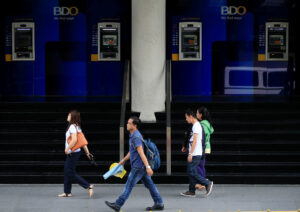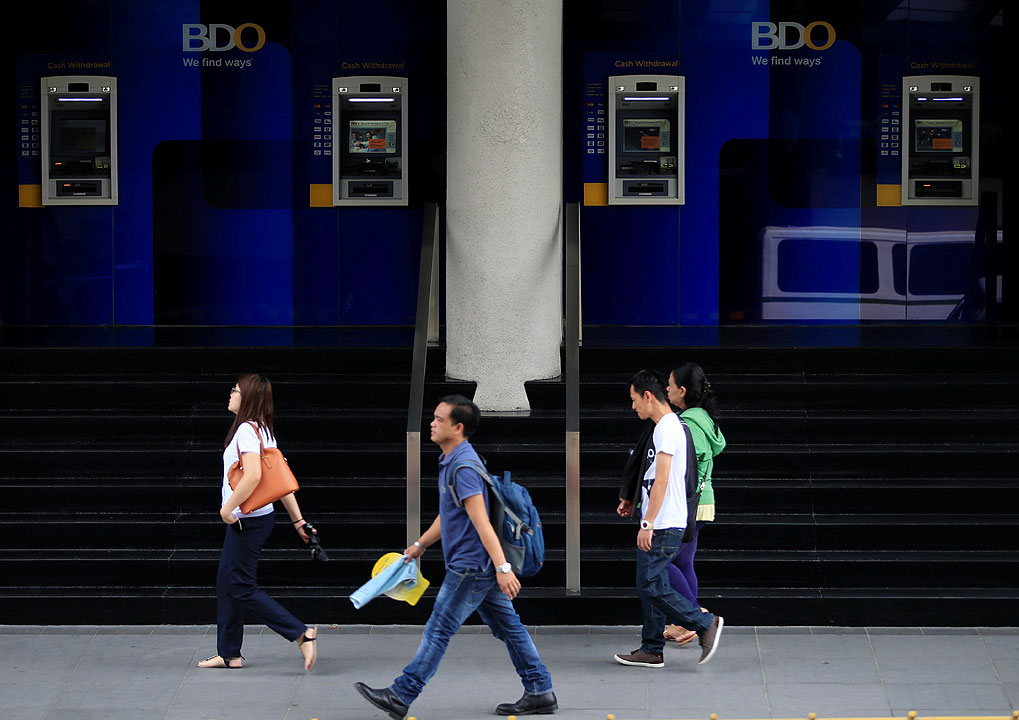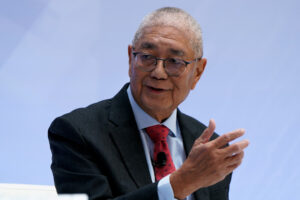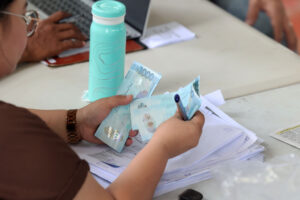
Basic, digital banking services help increase financial participation among underbanked — study

PROMOTING the use of basic and digital banking services will help encourage underbanked customers to increase their engagement with financial institutions, a study led by Mastercard in collaboration with Rizal Commercial Banking Corp. (RCBC) showed.
“Financial inclusion is not just about opening accounts — it’s about enabling sustained, active usage that unlocks real opportunities,” Mastercard Philippines Account Management Vice-President Judith Dayrit said in a statement on Thursday.
“At Mastercard, the goal is to help the underbanked move beyond access toward financial security and health, by encouraging frequent use and responsible credit adoption. This research with RCBC helps chart a path from first-time access to long-term, active participation — through intuitive design, thoughtful onboarding and robust security. We’re proud to undertake initiatives like this to support the Philippines in building a more inclusive and resilient financial future.”
The study used pseudonymized transactional data from over 25,000 DiskarTech consumers and 6,000 terminals of RCBC’s ATM Go partner-merchant network of mobile point of sale devices from January 2022 to October 2024, as well as qualitative findings from focus groups held in December 2024.
DiskarTech is RCBC’s financial inclusion “super app,” while ATM Go refers to its mobile automated teller machine terminals.
The data found that nearly 70% of DiskarTech users progressed beyond using basic banking services such as deposits, withdrawals, and fund transfers within 24 months.
“This advancement was consistent regardless of employment status, suggesting socioeconomic status alone does not determine financial progression,” the study said.
It said the responsible and consistent use of services such as bill payments, mobile top-ups, or saving regularly are the strongest indicators that a user will advance to deeper relationships with their financial institutions.
“Card usage in particular showed a stronger correlation with advancement than age or gender, reinforcing its value as both a behavioral tool and a commercial lever for financial service providers,” the study said.
Consumers with more than 10 transactions per month are two to four times more likely to use basic banking features such as digital payments more frequently or more advanced services such as applying for loans, or make timely bill payments compared to those with less than five transactions, it also found.
The study likewise showed that attracting consumers through gradual engagement is more effective than rapid adoption.
“Users who slowly integrated transactional tools over time were five times more likely to reach advanced stages than those who signed up for multiple features quickly, often driven by short-term incentives,” it said.
Consumers who developed steady usage over six or more months consistently reached the “security” stage, or consistently using basic banking services, between months 18 and 24.
“Consumers who took more than six months when adopting transactional products like Bill Pay and E-Load mobile airtime are also up to five times more likely to advance to security over a two-year timeframe,” the study said.
While rewards and promos are effective in encouraging engagement and advancing users along the financial inclusion journey, it could also result in short-term participation, it added.
“That said, users who joined primarily for promotional rewards often disengaged once those incentives ended. Without a sustained rewards strategy, there’s a risk of losing these users to competitors offering similar benefits.”
The study showed that more than 20% of DiskarTech users eventually transitioned into RCBC’s traditional banking products, typically opening a savings account within 11 months and a credit card by month 16.
In addition, DiskarTech consumers who later acquired an RCBC credit card had greater progression on average than non-card holders over a two-year span, with 67% moving on to frequently using basic banking services com-pared to 61% for non-cardholders.
“As users move from initial Access to active Usage, their annual transaction value — measured by gross dollar volume per account — increased more than fourfold, or 342%,” the study said, noting this was driven by increased usage of core banking services such as fund transfers.
It said that expert guidance and practical examples of using more complex banking products like loans, insurance, and investments can help increase customer engagement.
“This research came at a crucial moment for financial organizations. Amid the increasing calls for financial inclusion, this paper sheds light on the role of tech-enabled CX (customer experience) in developing relevant and im-pactful innovations. We are proud to have been featured in Mastercard’s white paper as we pursue our shared vision of promoting greater financial inclusion in the country,” RCBC President and Chief Executive Officer Reginaldo Anthony B. Cariaso said.
“Mastercard’s white paper on DiskarTech is a monumental step towards further showcasing the Philippines on the global map of sustainable inclusion… It underscores the tangible gains from our strategic collaborations with government, private sector partners, and industry peers,” RCBC Executive Vice-President and Chief Innovation and Inclusion Officer Angelito “Lito” M. Villanueva added. — Aaron Michael C. Sy



